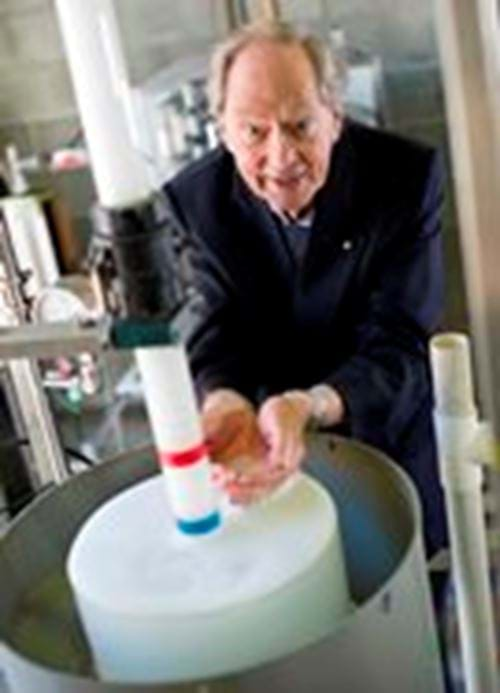Australian PM awards chemical engineering innovation
30th October 2015

Two chemical engineers have been recognised by the new Prime Minister of Australia, Malcolm Turnbull.
IChemE Fellow and laureate professor of Chemical Engineering, professor Graeme Jameson AO, was presented with the inaugural Prize for Innovation earlier this month. Jameson is professor of chemical engineering and director of the centre for multiphase processes at the University of Newcastle in New South Wales.
Jameson’s prize recognises innovation in technology. His break-through, the Jameson Cell, has injected billions of dollars into the Australian economy.
The Jameson Cell is a flotation device developed in conjunction with Mount Isa Mines in the 1980s. The cell uses bubbles, in a technique described as ‘froth flotation’, to recover large volumes of microscopic precious mineral particles during mining processes. The process has been implemented world-wide in over 25 countries.
In the same awards programme, the Malcolm McIntosh Prize for Physical Scientist of the Year, went to associate professor Cyrille Boyer. Boyer is an Australian Research Council Future Fellow, and currently lectures at the University of New South Wales’ School of Chemical Engineering.
Boyer was recognised for his use of light to make new and complex polymers. His technique has wide-spread application in non-stick coatings, anti-fouling technology, precision drug delivery, medical diagnosis and imaging.
Boyer’s ideas are built on reversible addition−fragmentation chain-transfer polymerization (RAFT) techniques, for which IChemE Fellow David Solomon and chemist Ezio Rizzardo received the Australian Prime Minister’s Prize for Science in 2011. He utilises light and chlorophyll to create polymers, which can be converted into nanoparticles for drug delivery. The technology can be used to break down bacterial biofilms that cause cystic fibrosis and sticky ear. Boyer plans to develop his technology, so that it will eventually enable the reconstruction of complex polymers, such as proteins and DNA.
Australasia director, Peter Slane, said that both Jameson and Boyer’s success highlights that chemical engineering is at the forefront of innovation, with wide-reaching benefits to the economy and environment. He said: “With the recent change in Australia’s leadership, we anticipate that this recognition signals a more positive attitude towards science and engineering. The awards illustrate the importance of chemical engineering to the nation’s economic prosperity.”